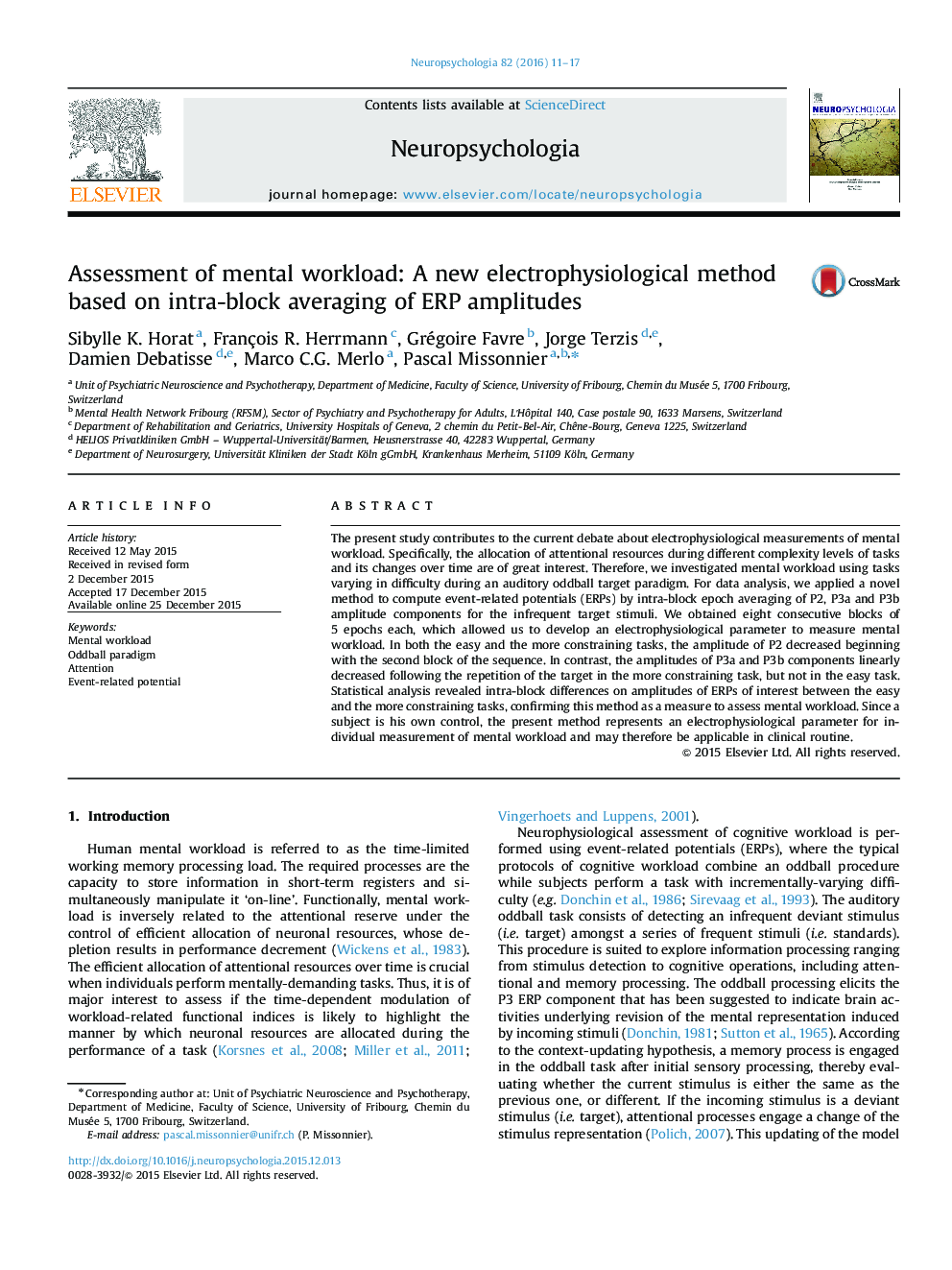| Article ID | Journal | Published Year | Pages | File Type |
|---|---|---|---|---|
| 7319294 | Neuropsychologia | 2016 | 7 Pages |
Abstract
The present study contributes to the current debate about electrophysiological measurements of mental workload. Specifically, the allocation of attentional resources during different complexity levels of tasks and its changes over time are of great interest. Therefore, we investigated mental workload using tasks varying in difficulty during an auditory oddball target paradigm. For data analysis, we applied a novel method to compute event-related potentials (ERPs) by intra-block epoch averaging of P2, P3a and P3b amplitude components for the infrequent target stimuli. We obtained eight consecutive blocks of 5 epochs each, which allowed us to develop an electrophysiological parameter to measure mental workload. In both the easy and the more constraining tasks, the amplitude of P2 decreased beginning with the second block of the sequence. In contrast, the amplitudes of P3a and P3b components linearly decreased following the repetition of the target in the more constraining task, but not in the easy task. Statistical analysis revealed intra-block differences on amplitudes of ERPs of interest between the easy and the more constraining tasks, confirming this method as a measure to assess mental workload. Since a subject is his own control, the present method represents an electrophysiological parameter for individual measurement of mental workload and may therefore be applicable in clinical routine.
Related Topics
Life Sciences
Neuroscience
Behavioral Neuroscience
Authors
Sibylle K. Horat, François R. Herrmann, Grégoire Favre, Jorge Terzis, Damien Debatisse, Marco C.G. Merlo, Pascal Missonnier,
